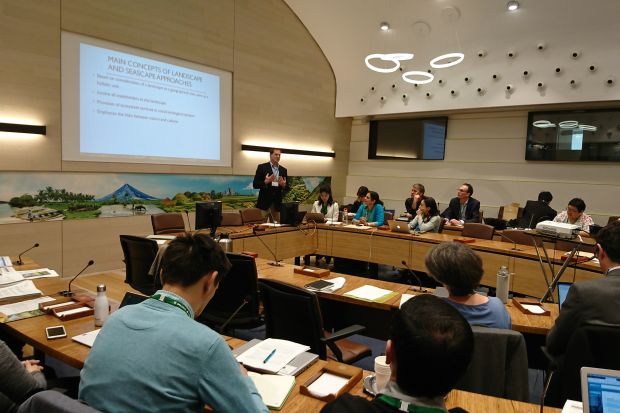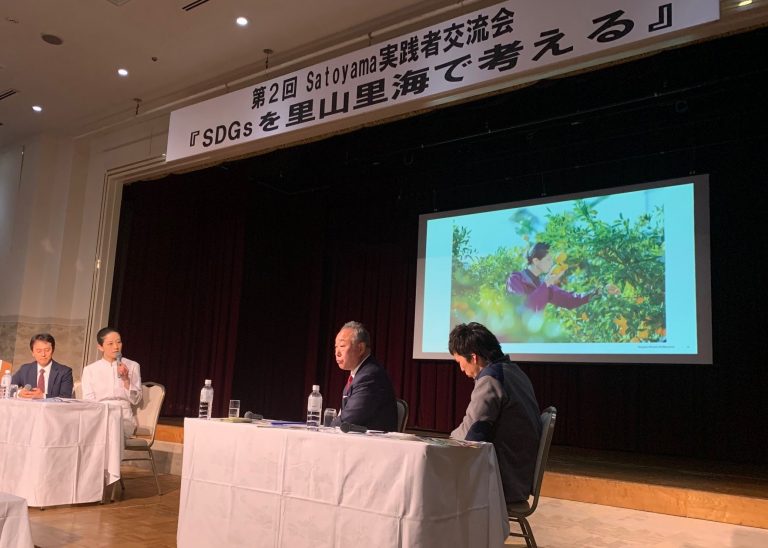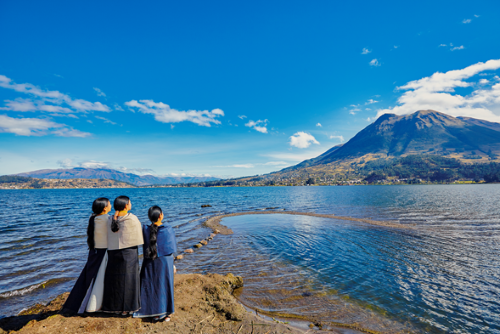IPSI Newsletter

TOPIPSI NewsletterIPSI Newsletter, March 2020
IPSI Newsletter, March 2020
2020.03.24
Dear IPSI members and friends,
Greetings from the IPSI Secretariat in Tokyo, Japan. IPSI and its members continue to stay active in a wide variety of projects and activities related to landscape and seascape approaches towards “societies in harmony with nature”.
This month’s newsletter contains another update on IPSI’s involvement in the development of a new post-2020 global biodiversity framework under CBD processes, including our participation in recent events and a report of a meeting on landscape approaches held in Rome. We are also pleased to share a report from another event in Japan, information on UNU-IAS’s PhD in Sustainability Science programme,and one of IPSI’s newest case studies from IPSI partner the Neotropical Montology Collaboratory at the Geography Department, University of Georgia in the United States of America.
As always, we hope you will contact us to submit any new case studies or other information about your activities, or if you have any questions or comments.
IPSI Secretariat
Update on IPSI and the post-2020 framework process
IPSI partners and the Secretariat have been actively participating in the development of a post-2020 global biodiversity framework under CBD processes. We look forward to a busy year of contributing to this process, working to ensure that landscape approaches including the SEPLS concept contribute to making future biodiversity policy more effective. We have a few updates again this month.
IPSI Secretariat staff members recently took part in the CBD events held at FAO headquarters in Rome:
- Thematic Consultation on Transparent Implementation, Monitoring, Reporting and Review for the Post-2020 Global Biodiversity Framework, 20-22 February 2020, Rome, Italy
- Second meeting of the Open-ended Working Group on the Post-2020 Global Biodiversity Framework, 24-29 February 2020, Rome, Italy
- Thematic Consultation on Capacity-building and Technical and Scientific Cooperation for the Post-2020 Global Biodiversity Framework, 1-2 March 2020, Rome, Italy
We also had planned to attend some of the other upcoming events as mentioned in previous newsletters, but for now these have been postponed due to the situation with the COVID-19 virus. We hope the situation can be resolved soon so that we can continue to contribute to this important process. Please continue to check this newsletter for further updates as the situation evolves.
For more information on the post-2020 process, please see the CBD website here.

Consultation Meeting on Landscape Approaches
An “Informal meeting on landscape and seascape approaches and their relevance to the post-2020 global biodiversity framework” was held in the margins of the Second meeting of the Open-ended Working Group on the Post-2020 Global Biodiversity Framework on 23 February 2020 at FAO Headquarters in Rome, Italy. Around 35 participants—mostly delegates from national government parties to the Convention on Biological Diversity (CBD)—attended for a lively discussion of what a landscape approach can contribute to making biodiversity policy more effective, and to share experiences and perspectives from countries around the world.
Participants at the meeting identified a number of benefits of landscape approaches, particularly that they can improve inclusivity by bringing together all interests and stakeholders in a landscape, enhance management of protected areas and spatial planning through greater connectivity across the landscape, and help to align policy at multiple levels. The meeting was co-organized with the Ministry of the Environment of Japan, the Ministry of Agriculture, Nature and Food Quality of the Netherlands, and the PBL Netherlands Environmental Assessment Agency.
For more information, please see the UNU-IAS website here.

Gathering of Practitioners from the Satoyama Promotion Consortium
An event titled the “Second Social Gathering of Practitioners from the Satoyama Promotion Consortium” was held 23 February 2020 in Shima City, Mie Prefecture, Japan, organized by the Japan Times Newspaper. This consortium is an initiative to promote the concept of satoyama in Japan, particularly the idea of “satoyama capitalism”, and this year’s gathering had the theme “Thinking about the SDGs in the context of production landscapes (satoyama) and seascapes (satoumi)”. The IPSI Secretariat’s Director Hiroaki Takiguchi attended the gathering as a panelist and presented IPSI and the work of the Secretariat at UNU-IAS.
For more information, please see the consortium’s website here (in Japanese only).
UNU-IAS PhD in Sustainability Science Programme
UNU-IAS, host of the IPSI Secretariat, still has an open call for candidates for its PhD in Sustainability Science. The programme starts in September 2020 and is conducted all in English. UNU-IAS students benefit from the unique opportunity to study in central Tokyo at a global university within the framework of the United Nations. Students gain both academic knowledge and practical research skills by actively contributing to the institute’s policy-oriented research projects. The deadline for application is 10 April 2020.
For more information, please see the UNU-IAS website here.

Recent Case Study: Neotropical Montology Collaboratory, Geography Department, University of Georgia
The IPSI Secretariat recently received a case study from partner organization the Neotropical Montology Collaboratory at the Geography Department, University of Georgia in the United States of America, focusing on activities in Ecuador.
The case study describes the qualities of a cultural landscape kept within modernity by the local people of the Utawallu valley in Imbabura province of Northern Ecuador. Conservation efforts to incorporate cultural diversity alongside the biological diversity of the significant protected area in Western Ecuador are needed in order to improve protection of the traditional ancestral farmscape of the Imbakucha Basin. According to the authors, different characteristics of the socio-ecological production landscape present in the site should lead to a successful initiation of a new wave of conservation in which Andean cultures are prioritized and cultural ecosystem services (re)valued. A plea is presented to invigorate the conservation of sacred sites as a necessary step towards the Imbakucha watershed being declared the first candidate in a list of several prospective category V sites in Ecuador. UNESCO has recognized the area as a sacred site and there is a move from within the community to enlist it as a GeoPark, due to the impressive geological and morphological features of the watershed and the waves of tourists seeking adventure tourism, and not only recreation, but also ethnotourism from the indigenous market place. The authors discuss the dilemma of conservation and sustainable development within a syncretic mountainscape where European practices and indigenous traditions have melded, producing a uniquely Ecuadorian trademark attraction signalling a syncretic mountainscape. Accordingly, they confront the dilemma of conservation and development with the question: How can we measure the cultural value of the services provided by the Imbakucha mountainscape, and how would the perception of climate change make ethnotourism practices enhance nature conservation from an indigenous perspective?
This case study was originally published in the Satoyama Initiative Thematic Review vol. 5. For the full case study, please see either the volume or the full write-up of the case study on the IPSI website here.
Contact
Please be sure to let the Secretariat know if there are any changes in your e-mail address or contact information.
Secretariat of the International Partnership for the Satoyama Initiative
United Nations University Institute for the Advanced Study of Sustainability (UNU-IAS)
5–53–70 Jingumae
Shibuya-ku, Tokyo 150-8925
Japan
Tel: +81 3-5467-1212
Fax: +81 3-3499-2828
Email: isi@unu.edu
If you have been forwarded this newsletter and would like to SUBSCRIBE, you can do so on the IPSI website here.


